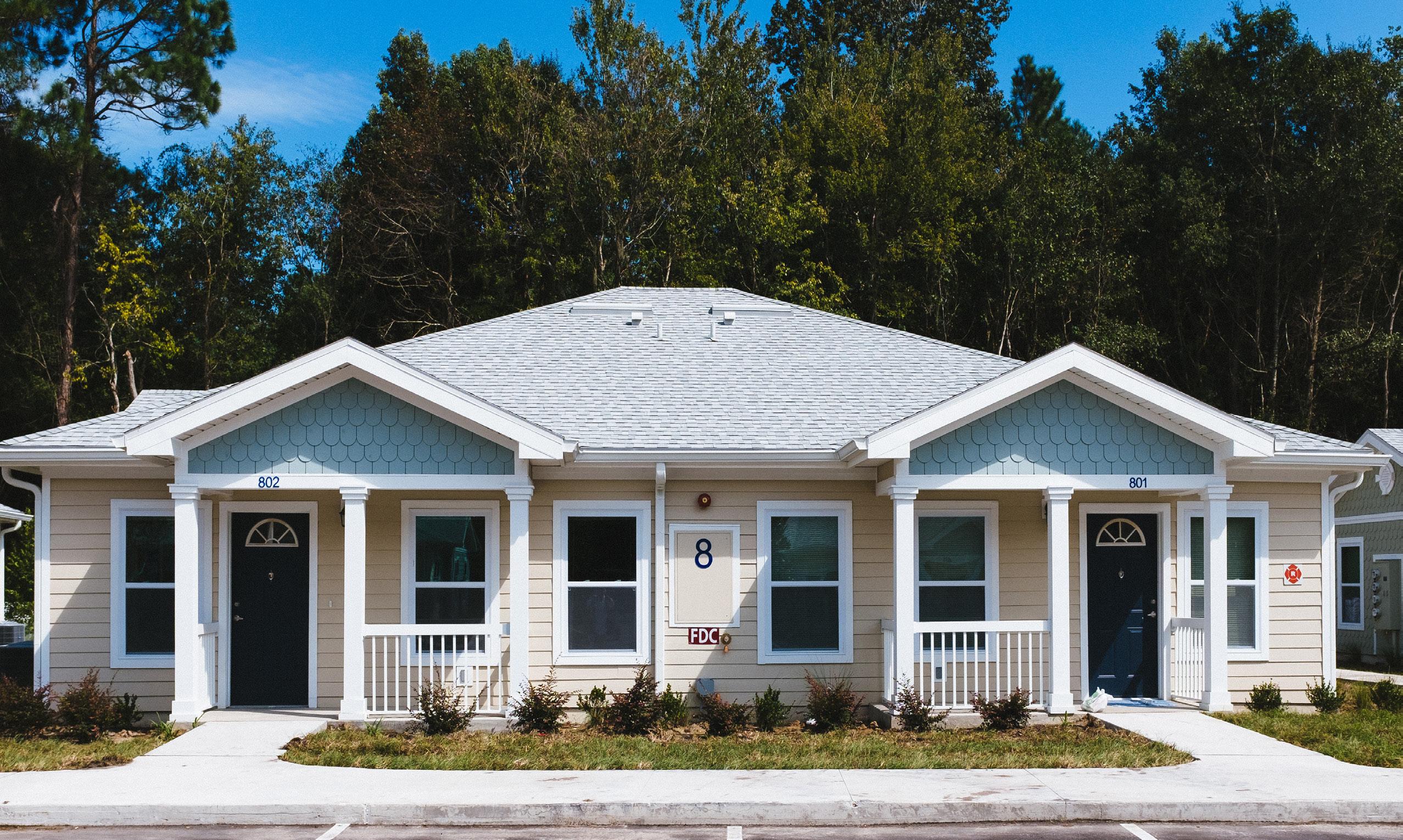TABLE OF CONTENTS HOUSING AND SERVICES BEST PRACTICES IN SERVING HIGH UTILIZERS OF PUBLIC SERVICES The three housing providers in this pilot based their approaches to serve residents on their supportive housing experience and best practices from the national literature. As a result of peer discussions with pilot leaders about their strategies, Florida Housing concludes that the following best practices are important to implement to serve residents with high needs, both to help these Floridians and to create opportunities for cost savings in the state. Residents’ Expectations and Goals. Expectations for residents’ optimal stability and quality of life must be based on each person’s expectations and goals; their history, abilities, capacities and life skills; and individual milestones specific to their situations. This is an overarching principle and best practice in providing supportive housing and services to residents. Use of the Housing First approach in resident selection where residents first choose their housing and then are offered help to access services tailored to their needs and goals, responds to this person-centered principle. Housing Stability Supports and Resident Services Coordination. Residents with high needs must have immediate access to supports related to obtaining and maintaining housing stability, addressing trauma and acute issues, accessing coordinated community-based supportive services and health/ behavioral health services, peer supports and motivational interviewing. On-site, full-time Resident Services Coordinators should be employed in addition to other staff who may be assigned to assist residents. Because of their on-site, intensive work with residents, coordinators should have low resident caseloads. Coordinators must be well qualified, very skilled and experienced in assisting residents with high needs. Caseload recommendations, training and experience recommendations are described in Appendix A. Until this best practice is more universal, Florida Housing believes Resident Services Coordinators should be hired and supervised by the non-profit housing provider with experience in resident services coordination.
• Trauma informed care has come to be more understood as a critical best practice in helping persons coming out of homelessness develop housing stability. Studies, show that an extremely high percentage of adults' mental health or substance abuse issues have reported a history of trauma, often in childhood. This is exacerbated when one experiences homelessness. We know that experiences of trauma impact every aspect of how a person functions, but it can be treated. • Formal peer support relevant to the resident’s needs is a beneficial service for a resident’s success. Peer support workers are those who have “lived experience” – i.e., they have been through their own recovery processes and can support residents with similar situations. Peer supports have been found to help residents stay engaged in sustained, successful recovery processes. • Motivational interviewing is “. . .a collaborative, person-centered approach to elicit and strengthen motivation to change. It offers providers a useful framework for interacting with people who are experiencing homelessness and struggling with mental and/or substance use disorders or trauma,” according to SAMHSA. This best practice “. . .is rooted in an understanding of how hard it is to change learned behaviors, many of which have been essential to survival on the streets.” This approach works with the idea that “. . .motivation to change should be elicited from people, not imposed on them.”11 Supportive housing properties financed by Florida Housing currently are required to offer modest services coordination help to all interested residents to assist with referrals to community-based services. However, housing stability services are not required to be part of this service, even for residents with high needs. Florida Housing’s coordinator qualifications and experience requirements are not as extensive as those found by pilot leaders to be important. As a result of this pilot, Florida Housing should evaluate its current resident services coordination requirements and consider whether changes are necessary to strengthen coordination particularly for residents with high needs. At a minimum, tenancy support services should be required. See Appendix A for a more detailed discussion of the housing stability framework.
S. Rollnick and J. Allison, The Essential Handbook of Treatment and Prevention of Alcohol Problems, Problems, and SAMHSA at https://www. samhsa.gov/homelessness-programs-resources/hpr-resources/empowering-change.
11
26
Findings of the Florida High Needs High Cost Pilot








